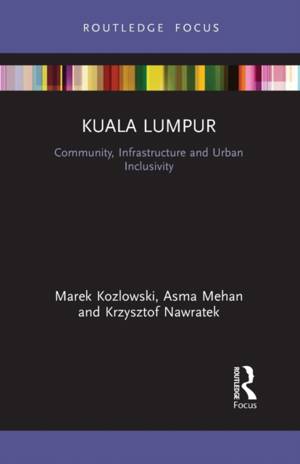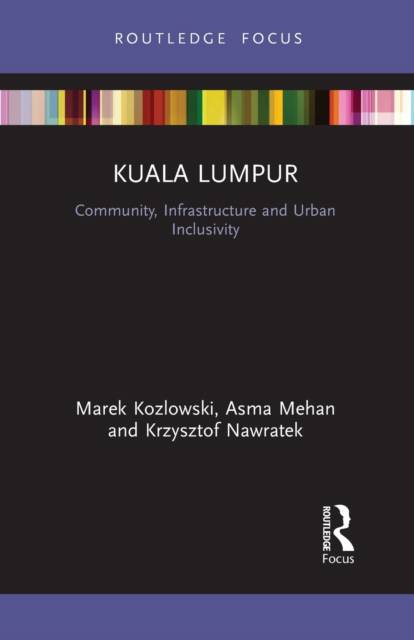
- Retrait gratuit dans votre magasin Club
- 7.000.000 titres dans notre catalogue
- Payer en toute sécurité
- Toujours un magasin près de chez vous
- Retrait gratuit dans votre magasin Club
- 7.000.0000 titres dans notre catalogue
- Payer en toute sécurité
- Toujours un magasin près de chez vous
Kuala Lumpur
Community, Infrastructure and Urban Inclusivity
Marek Kozlowski, Asma Mehan, Krzysztof NawratekDescription
Kuala Lumpur is a diverse city representing many different religions and nationalities. Recent government policy has actively promoted unity and cohesion throughout the city; and the country of Malaysia, with the implementation of a programme called 1Malaysia. In this book, the authors investigate the aims of this programme-predominantly to unify the Malaysian society-and how these objectives resonate in the daily spatial practices of the city's residents.
This book argues that elements of urban infrastructure could work as an essential mediator 'beyond community', allowing inclusive social structures to be built, despite cultural and religious tensions existing within the city. It builds on the premise of an empirical study which explores the ways in which different communities use the same spaces, supported through the implementation of a theoretical framework which looks at both Western and Islamic conceptualisations of the notion of community. Through the analysis of Kuala Lumpur, this book contributes towards the creation of more inclusive places in multi-ethnic, multi-cultural and multi-religious communities across the world.
Spécifications
Parties prenantes
- Auteur(s) :
- Editeur:
Contenu
- Nombre de pages :
- 142
- Langue:
- Anglais
- Collection :
Caractéristiques
- EAN:
- 9781032474830
- Date de parution :
- 21-01-23
- Format:
- Livre broché
- Format numérique:
- Trade paperback (VS)
- Dimensions :
- 140 mm x 216 mm
- Poids :
- 172 g

Les avis
Nous publions uniquement les avis qui respectent les conditions requises. Consultez nos conditions pour les avis.






